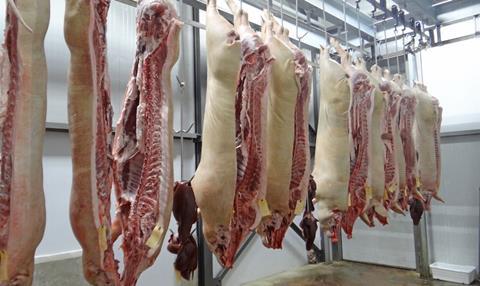A survey of more than 1,300 farming and food businesses across the UK found that access to local abattoir services was essential for many of them to operate, with 88% stating their abattoir was either important or essential to the success of their business; while 64% felt the availability, or lack of availability, of a local abattoir impacted their future business plans.

The survey highlighted the benefits of small and local abattoirs, with respondents ranking animal welfare, the local economy, and the environment as the top areas where abattoirs can have a positive impact.
The survey, carried out by the National Craft Butchers and, Sustainable Food Trust showed that the loss of small abattoirs, at a rate of 10% per year, according to the Food Standards Agency, has left abattoir customers reliant on only one or two remaining operators, creating a fragile system that is vulnerable to collapse in the event of further closures. Journey times have increased significantly following closures, with some animals now travelling more than 200 miles to slaughter. Many remaining smaller abattoirs are increasingly busy and difficult to book into, respondents said. This has led to farming and food businesses being forced to close or change.
One respondent said: “The distance and availability is what has stopped us developing our product sooner.”
Another said: “I could commit to farmers markets as I’d know I’d have a steady availability. As it is, our local abattoir is very busy and waiting times mean that sheep condition can’t be properly judged.”
Remote and island communities have been particularly affected. One farmer on Orkney said: “Since Orkney abattoir closed in 2018 the situation here is dire – most of the free-range rare breed pig farmers have closed down. The next nearest abattoir costs us over £250 just for the ferry taking a trailer that can hold max 20 sheep, then there is the 30-mile drive to the port and the 110 mile drive to Dingwall.”
And a number of respondents were very clear that their business was entirely dependent on the abattoir. One respondent said: “If this one closed, we would lose our business,” and another said, “We are very lucky but if it shut, I would have to stop livestock farming as the nearest would be too far away.”
There were more than 30 respondents who stated they used an abattoir which has closed down since the survey was conducted. One customer of Tottingworth abattoir, which closed last year, said: “Without a local abattoir a major part of our local livestock sales will disappear. In the South-East there are so few abattoirs left that losing any more would prevent sales and increase food miles.”
Abattoirs needed for different breeds and species
Respondents to the survey highlighted the importance of abattoirs that can accommodate a range of needs – 29% reported sending rare breeds to an abattoir, whilst 7.5% reported sending long-horned cattle. However, 33% of respondents had trouble finding an abattoir that would accommodate the species or breed of animal they keep, whilst 13% reported having issues finding an abattoir that would accommodate long-horned cattle.
The survey showed that farmers and food businesses are keen to find solutions, with 64% saying they would be interested in cooperative-owned abattoirs and 81% expressing an interest in mobile abattoirs, with 73% saying they would pay more for this service. There was also interest in doing more with their products, as 33% said they would collect the hides and skins if they had access to further processing facilities.
In order to revitalise the sector, both by protecting remaining abattoirs and supporting new ones to open, a multi-pronged approach is needed to address the problems that are leading to closures.
Megan Perry, head of Policy and Campaigns at the Sustainable Food Trust, said: “This survey highlights that a diverse network of abattoirs throughout the UK is vital to farms of all sizes and to the viability of local meat businesses. We welcomed the Government’s announcement of funding for the sector, earlier this year. However, for this fund to have the impact that is needed, it must be accessible, broad and with a long timeframe, and it must be implemented alongside work to address other issues including regulation, recruitment and waste disposal costs.”
Eleanor O’Brien, managing director at National Craft Butchers, said: “Alongside funding, the Government needs to implement flexibilities that already exist within the regulation that could help smaller abattoirs to increase productivity, expand and thrive. Without this two-fold approach, the small abattoir sector will continue to stagnate, with severe consequences for farmers, animal welfare and supply chain diversity and resilience.”
This story was originally published on a previous version of the Meat Management website and so there may be some missing images and formatting issues.












